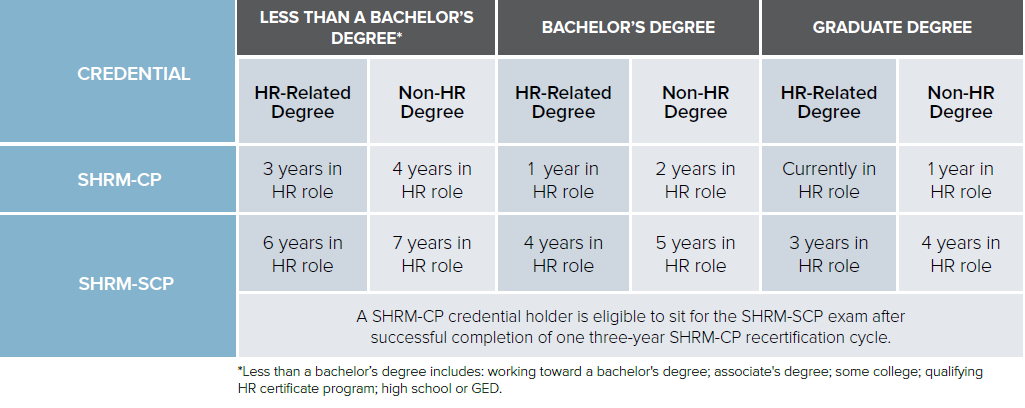
You can be a labor relations specialist if you are interested in a career as a labor relations specialist. A Bachelor's degree is required for this job, but you can also get a Master’s degree. In the job description of a labor relations specialist, it should specify required and preferred qualifications. The job description should also include details about education and certifications for labor relations specialists.
A labor relations specialist has common duties
In addition to experience in human resources, a labor relations specialist should have strong interpersonal and problem-solving skills. They should also be skilled in technology and spreadsheets. A labor relations specialist resume can be created in just a few minutes. For help in creating your own labor relations specialist Resume, take a look at our samples.
Usually, a labor relations specialist has a bachelor's degree. There are many education requirements. They can range from a high-school diploma to a master’s degree. Labor relations specialists work to bridge the gap between workers' and managerial expectations.

Education is necessary
Understanding the employment laws is essential before starting this career. These laws include the Fair Labor Standards Act and the National Labor Relations Act. A solid knowledge of these laws is necessary to become a labor relation specialist. Graduate and undergraduate courses in labor law are available. This field also offers certifications. Although they are not compulsory, these will allow you a better understanding to the labor laws. They also help you focus on particular areas.
Regardless of the education level, a labor relations specialist should have excellent communication skills. They should be able and able to communicate effectively both with managers as well as employees. A good understanding of conflict resolution is also a must. As with any job, you should review a labor relations specialist job description to determine what skills and education are necessary for this position.
Earning potential
There is an increasing demand for labor relations specialists as the 21st century progresses. While the number who leave the profession is declining, each year there are many job openings. An estimated 70,000 positions will open between now and 2029. If you're interested in working in the field, becoming a labor relations specialist is an excellent starting point. People who have worked in other areas can gain valuable experience and earn a degree in the field. Competitors will be able to communicate effectively with clients and manage negotiations if they are able to do so.
The earning potential of labor relations specialists is between $64,800 and $128,600. Salary ranges depend on experience and where you live. On average, labor relations specialists earn $74,877 per annum. The highest-paying regions for labor relations specialists are the New Jersey and Utilities sectors.

Job outlook
According to the U.S. Bureau of Labor Statistics the outlook for labor relations specialists is generally poor. This is a result of a decline in the number of unions, which is expected to decrease employment opportunities. However, candidates with higher education and specialized certification should still enjoy the highest job prospects.
A bachelor's degree is required to work in human resources. This degree focuses on leadership skills and effective management of employees. It also addresses current trends and issues in the human resource sector, including labor relations.
FAQ
What are the five management process?
These five stages are: planning, execution monitoring, review and evaluation.
Setting goals for the future requires planning. This includes setting goals for the future and defining what you want.
Execution takes place when you actually implement the plans. Everyone involved must follow them.
Monitoring is the act of monitoring your progress towards achieving your targets. This should involve regular reviews of performance against targets and budgets.
Reviews take place at the end of each year. They allow for an assessment of whether all went well throughout the year. If not then, you can make changes to improve your performance next year.
After each year's review, evaluation occurs. It helps to identify what went well and what didn’t. It provides feedback about how people perform.
What are the key management skills?
Business owners need to have management skills, no matter how small or large they may be. These include the ability and willingness to manage people, finances as well resources, time and space.
Managerial skills are required when setting goals and objectives and planning strategies, leading employees, motivating them, solving problems, creating policies, procedures, or managing change.
There are so many managerial tasks!
What role does a manager play in a company?
The role of a manager varies from one industry to another.
A manager is generally responsible for overseeing the day to day operations of a company.
He/she ensures the company meets its financial commitments and produces goods/services that customers demand.
He/she ensures employees adhere to all regulations and quality standards.
He/she plans and oversees marketing campaigns.
Why is it important that companies use project management methods?
Project management techniques are used to ensure that projects run smoothly and meet deadlines.
Because most businesses depend heavily on project work to produce goods or services,
Companies must manage these projects effectively and efficiently.
Companies could lose their time, reputation, and money without effective project management.
What are the steps of the management decision-making process?
The decision-making process of managers is complicated and multifaceted. It involves many elements, including analysis, strategy. planning. implementation. measurement. evaluation. feedback.
When managing people, the most important thing to remember is that they are just human beings like you and make mistakes. You can always improve your performance, provided you are willing to make the effort.
This video will explain how decision-making works in Management. We discuss the different types of decisions and why they are important, every manager should know how to navigate them. The following topics will be covered:
How can we make our company culture successful?
A company culture that values and respects its employees is a successful one.
It's founded on three principal principles:
-
Everybody can contribute something valuable
-
People are treated fairly
-
Respect is shared between individuals and groups
These values reflect in how people behave. They will show consideration and courtesy to others.
They will listen respectfully to the opinions of others.
These people will inspire others to share thoughts and feelings.
The company culture promotes collaboration and open communication.
People can freely express their opinions without fear or reprisal.
They know mistakes will be accepted as long as they are dealt with honestly.
Finally, the company culture promotes integrity and honesty.
Everyone understands that the truth is always best.
Everyone understands that there are rules and regulations which apply to them.
And no one expects special treatment or favors.
What's the difference between a program and a project?
A program is permanent while a project can be temporary.
A project usually has a specific goal and deadline.
It is often done in a team that reports to another.
A program often has a set goals and objectives.
It is often implemented by one person.
Statistics
- Hire the top business lawyers and save up to 60% on legal fees (upcounsel.com)
- Your choice in Step 5 may very likely be the same or similar to the alternative you placed at the top of your list at the end of Step 4. (umassd.edu)
- Our program is 100% engineered for your success. (online.uc.edu)
- The average salary for financial advisors in 2021 is around $60,000 per year, with the top 10% of the profession making more than $111,000 per year. (wgu.edu)
- This field is expected to grow about 7% by 2028, a bit faster than the national average for job growth. (wgu.edu)
External Links
How To
What is Lean Manufacturing?
Lean Manufacturing techniques are used to reduce waste while increasing efficiency by using structured methods. They were created in Japan by Toyota Motor Corporation during the 1980s. It was designed to produce high-quality products at lower prices while maintaining their quality. Lean manufacturing focuses on eliminating unnecessary steps and activities from the production process. It consists of five basic elements: pull systems, continuous improvement, just-in-time, kaizen (continuous change), and 5S. The production of only what the customer needs without extra work is called pull systems. Continuous improvement refers to continuously improving existing processes. Just-in time refers to components and materials being delivered right at the place they are needed. Kaizen is continuous improvement. This can be achieved by making small, incremental changes every day. Five-S stands for sort. It is also the acronym for shine, standardize (standardize), and sustain. To achieve the best results, these five elements must be used together.
Lean Production System
Six key concepts form the foundation of the lean production system:
-
Flow: The goal is to move material and information as close as possible from customers.
-
Value stream mapping - Break down each stage in a process into distinct tasks and create an overview of the whole process.
-
Five S's – Sort, Put In Order Shine, Standardize and Sustain
-
Kanban – visual signals like colored tape, stickers or other visual cues are used to keep track inventory.
-
Theory of constraints - identify bottlenecks in the process and eliminate them using lean tools like kanban boards;
-
Just-in Time - Send components and material directly to the point-of-use;
-
Continuous improvement - Make incremental improvements rather than overhauling the entire process.